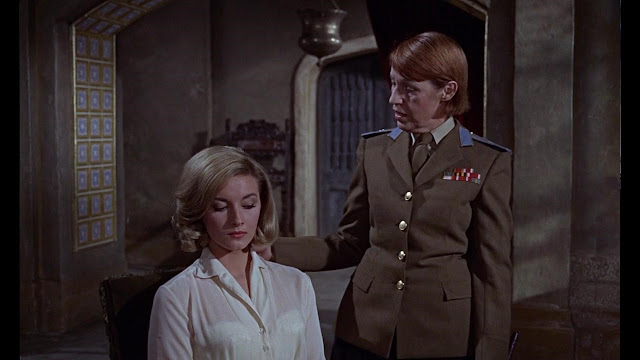Ian Fleming On Nation-Building
I’ve spent the past 18 months or so immersed in the electronic
news media, being pummeled with anxious messages about “democracy.” Certainly we have a president in office whose
inclinations, if we’re being honest, are decidedly anti-democratic. And the Washington Post has added a
catch-phrase to their masthead: “Democracy Dies In Darkness” – whatever that
means. So what is this Democracy
stuff? I’m here to discuss.
The premise of all the furor is that democracy is good. Do we really like democracy? Democracy is frustrating; it takes forever to get anything
done; you’re lucky if you get 50% of what you want in terms of policy. But let’s cut to the chase: basically we like
its concepts of accountability and transparency, because no one wants to live
under a system that might allow a brutal oppressive corrupt regime to come to
power, denying its victims any means of seeking recourse or relief.
And it seems to be stipulated in American public discourse
that democratic systems are the best, and should be encouraged everywhere. Are they the best? If democratic representative government is “the
best,” the most robust and effective system, why aren’t all the world’s nations representative
democracies?
The answer is that democratic systems are NOT robust, they
are inefficient and fragile, and require educated, enlightened participation to
sustain them and make them work. Given
this, is it reasonable to expect that any given nation, regardless of its history
or culture, could be a suitable host for democratic government? Look at Russia, which, after the downfall of
the Soviet system, started afresh with democratic elections – and quickly fell
back under the yoke of corruption and criminality.
Indeed, look at the sizable portion of the
US electorate who is ready to hand authoritarian power to a single person, without
concern for his corruption and malignancy.
Being thoroughly pickled from my media immersion, and
fearing for my sanity, I put down the mobile devices and picked up some
paperbacks.
Ian Fleming wrote “From Russia With Love” in 1957. Early parts of the story take place in Turkey,
scenes of which Fleming describes with imaginative detail. With the media jabber about democracy,
corruption, nationalism, racism, bigotry etc. resonating in my mind, a couple
passages stood out. I will quote them:
[On arrival at Istanbul airport] “So these dark, neat, ugly
little officials were the modern Turks.
He listened to their voices…and watched the dark eyes that belied soft,
polite voices. They were bright, angry, cruel eyes that had only lately come
down from the mountains… They were eyes that had been trained for centuries to
watch over sheep and decipher small movements on far horizons. They were eyes that kept the knife-hand in
sight without seeming to, that counted the grains of meal and the small
fractions of coin and noted the flicker of the merchant’s fingers. They were hard, untrusting, jealous eyes.”
[A local Turkish capo] “...’That is the only way to treat these
damned people. It is all they
understand. It is in the blood. All this pretence of democracy is killing them. They want some sultans and war and rape and
fun. Poor brutes, in their striped suits
and bowler hats. They are
miserable. You’ve only got to look at
them.’”
Well there you have it – if Ian Fleming wrote it, it must be
a universal truth: some people just aren’t ready for the civilized niceties of
democracy. I imagine we’ve all witnessed
instances where some person, through accident or luck, has handed to him some responsibility
that’s he’s just not ready for. It’s
often not pretty. And everyone knows a
story of some person biting the hand that fed them.
But my intention is not to promote some “screw the Turks” message. Or to malign any nation or region or
people. In fact, good people can and do come
from everywhere –- they’re just darn few, and far between.



